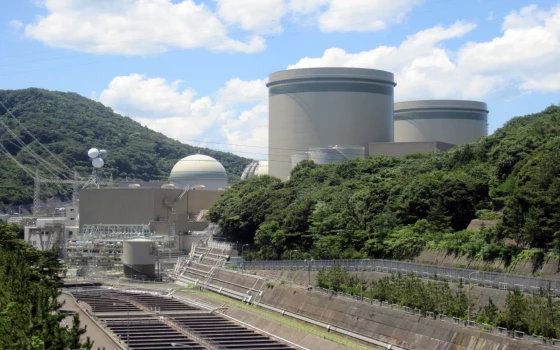
Japan officially adopts the policy of using nuclear reactors after the end of their life span

- Europe and Arabs
- Friday , 10 February 2023 15:9 PM GMT
Japan's cabinet has formally adopted a policy allowing nuclear reactors to operate beyond their current 60-year lifespan and to build new units to replace old units, as part of efforts to reduce carbon emissions while ensuring adequate energy supplies nationwide.
According to the official Japanese "Kyodo" news agency, the new government's "green transition" policy is characterized by the intensive use of nuclear energy along with renewable energy and represents a major shift in public policy for Japan, which suffered a devastating nuclear disaster in 2011.
The Japanese Cabinet's decision comes after a meeting held in late December, during which it agreed to adopt the new policy based on public and private investment estimates that recommended saving 150 trillion yen over the next ten years.
It is expected that bills for the implementation of the new policy will be presented to parliament during the current session. The new policy would effectively extend the amount of time reactors can remain in operation after 60 years by excluding time spent on inspections and other periods when they are offline when calculating their total operational life.
The policy also calls for developing advanced reactors that are safer than conventional reactors, and only allowing them to be built inside reactor buildings slated for decommissioning, as the government aims to start operating next-generation reactors in 2030.
It also stipulates that the central government is responsible for the final disposal of high-level radioactive waste from nuclear power generation. It is an issue that has been a source of concern for the Japanese people and a challenge in advancing nuclear policy.
Source: Middle East News Agency












No Comments Found